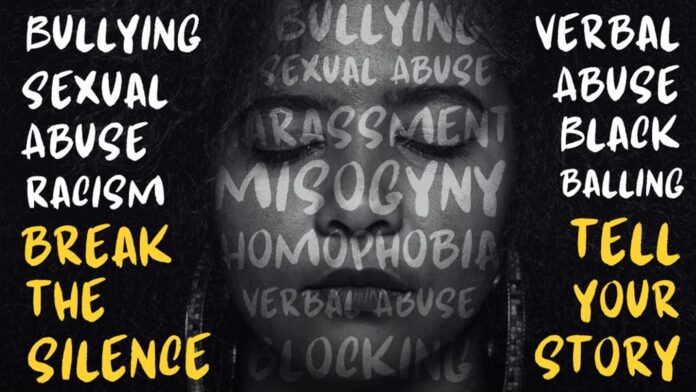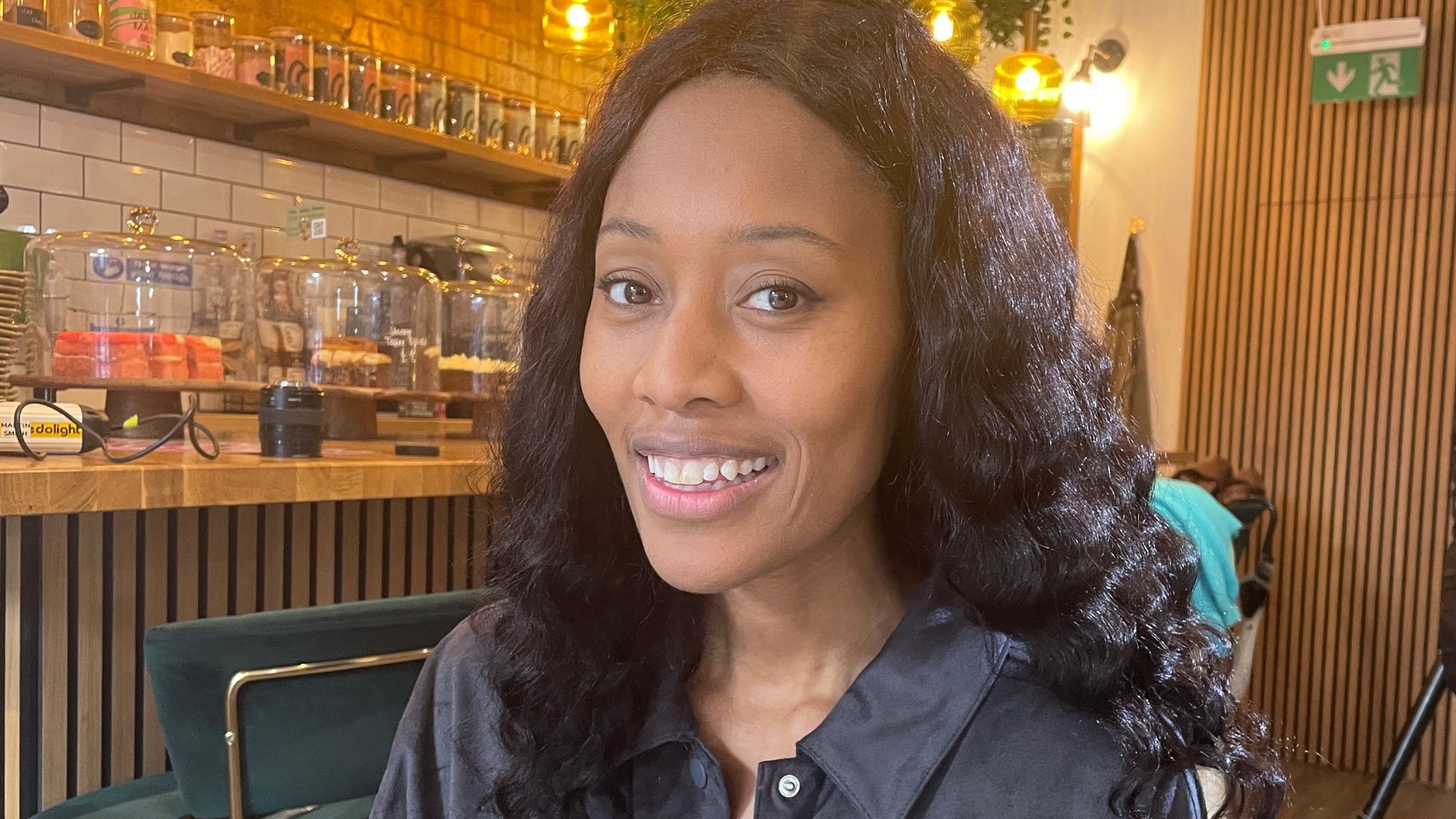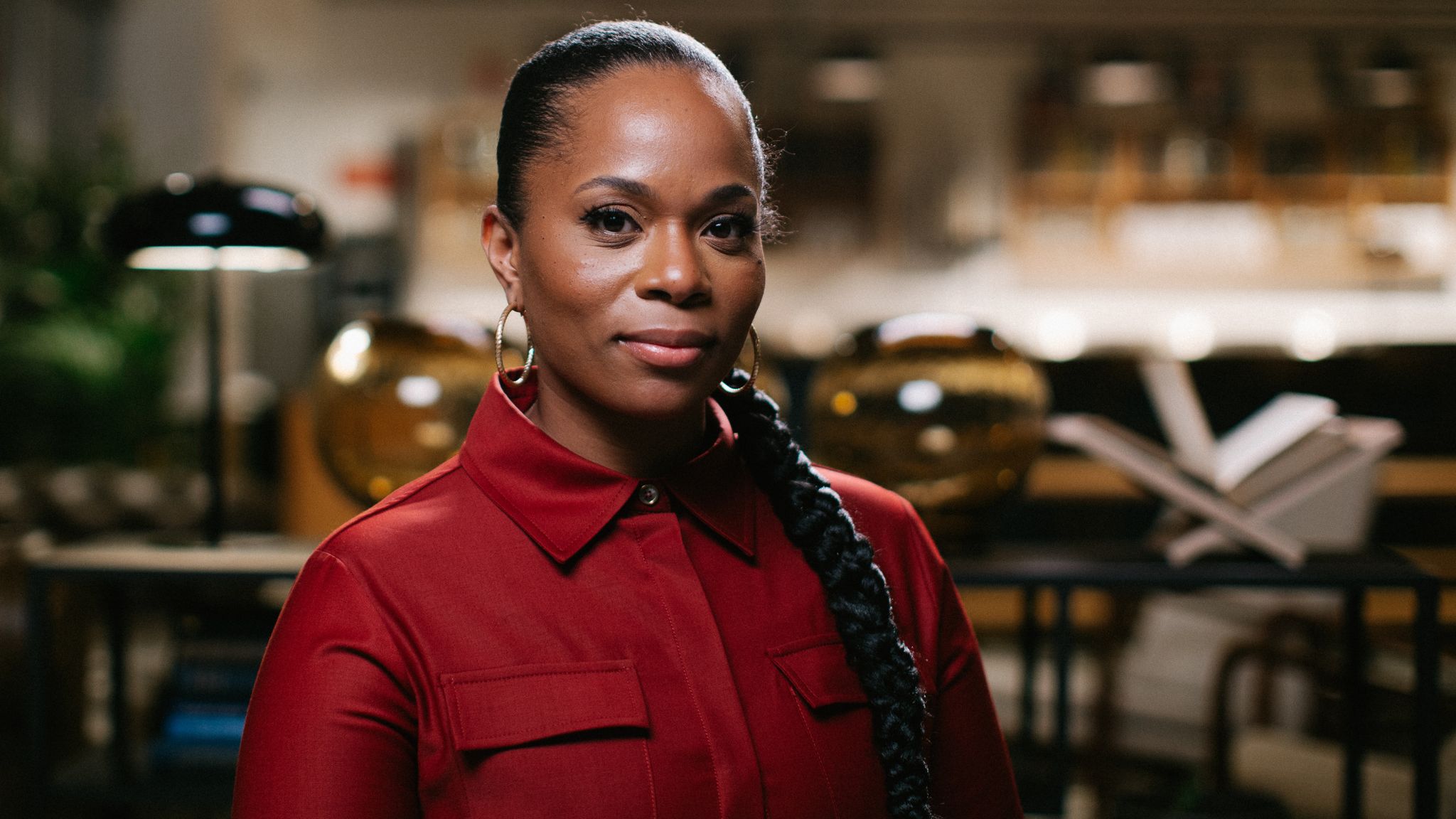Six years ago, singer VV Brown was at breaking point. After two decades of frequently enduring racism, sexual harassment and “male ego” in the music industry she had reached rock bottom.
“If I had not walked away, I think I would have been dead,” she tells Sky News. “I was addicted to sleeping pills, I suffered from depression… and there was a moment where I tried to go.”
Brown, an indie-pop singer-songwriter, rose to fame with the release of one her early hits, Shark In The Water, from debut album Travelling Like The Light in 2009. She went on to release two more albums in 2013 and 2015, before telling fans in a social media post that she was done.
“I was constantly muting, silencing [myself] and that caused so much dissociation,” she says now. “There is definitely a sense of navigating around male ego in order to feel like you can have a career.”
Sexual harassment, she says, was a daily occurrence.
Not from every producer and executive, but enough to make her understandably wary, with certain men “offering transactional opportunities, to which I said no, but feeling under pressure that if you don’t oblige it could have an effect on your career”.
‘There was an obligation for me to wear my sexual identity on my sleeve’
After moving from London to Northampton to raise her family, it dawned on Brown there was a lot to mentally unpack. She meets us in the family-run coffee house Grandbies not far from where she lives and says today, thankfully, she is in a much better place.
But as a black woman, she believes her experience in the industry was very different to that of white female artists.
“I couldn’t be what they were asking me to be because… that was very much through the lens of a white man. As a black woman, there was an obligation for me to wear my sexual identity on my sleeve.
“I would have white friends, musician friends, who wouldn’t get the same outfits and I would always question, why am I dangling this piece of string that I’m supposed to wrap around me… and you’ve got, you know, something a bit different?
“Wearing shorter skirts, being told to dress provocatively to sell my sexual being to the punters, I’d get that all the time.”
Brown says she experienced sexual harassment and racism on a daily basis, from microaggressions she says “chipped away” at her identity – such as a photoshoot with a “well-known magazine and them picking my hair and grunting, ‘what are we going to do with her?'”, and the “encouragement of wearing weaves and wigs” – to more overt instances, including “literally being shouted and being called words that are terrible from people within my team or the public”.
The singer is speaking out now to encourage other black women working in any capacity within the music business to take part in a national survey of bullying and harassment by Black Lives in Music, an arts organisation working to dismantle racism in the industry.
Once complete, BLiM’s Charisse Beaumont says it will inform legislation via the work of the Creative Industries Independent Standards Authority (CIISA).
“We will take that evidence to government and we hope they will act upon it,” she says. “This data matters.”
Read more:
Metallica frontman has Lemmy’s ashes tattooed into finger
Why are thousands of video game workers losing their jobs?
Now lecturing, writing and making music when she wants to – returning with the album Am I British Yet? last year – Brown says it took years of therapy to work through her experiences.
As a mum to two daughters, she says the idea of them wanting to work in the music business “terrifies” her.
“The racism, the objectification the misogynoir, the patriarchy… but at the end of the day they have their journey and if they want to do it I will equip them to make sure they are just as ready and even more rebellious than me,” she says – jokingly adding that she will do so only so “they can bring this whole industry down”.
Could the UK music industry be long-overdue a #MeToo moment?
The Bullying and Harassment in the Music Industry survey can be completed through the Black Lives in Music website.
Source : Sky News


















